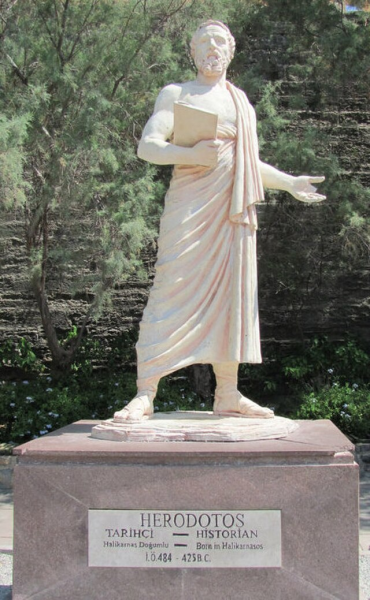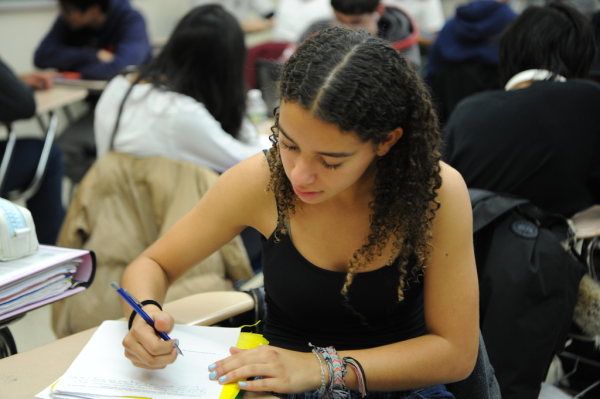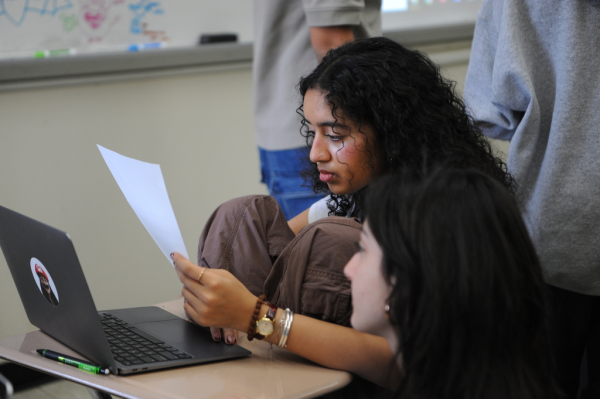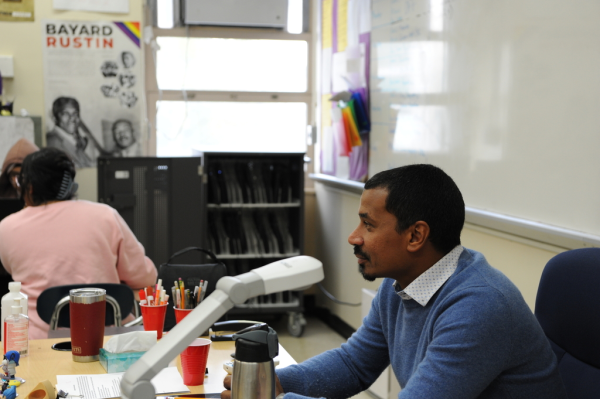As a young girl, I always believed everything that my teachers said. I learned about the greats, from George Washington to Christopher Columbus. But as I grew up, I realized that you should always do your own research. Now, today, I am more aware of the power that teachers have over my learning.
Students just like me, from around the world, learn history at school. We learn about the tragedies and the triumphs of history from our teachers. It is the teachers who have the power over the narrative, and the power to shape minds by crafting a certain version of history.
Our History of Getting History Twisted
From simple propaganda movements to demagogues like Adolf Hitler, we have a long history of twisting history. Even today, Vladimir Putin is using history to justify the war in Ukraine. He has meticulously crafted a certain perspective of world history, a perspective reflected in his new high school history textbook, creating a new generation of people with his ideals.
This is not the first time a political leader has done this. Hitler controlled the media and displayed Natzi propaganda to influence public opinion. Hitler even controlled education, creating the “Hitler Youth” group. The members grew up believing ideals that Hitler had told the teachers to teach.
Historical revisionism is a common manipulation tactic and has been used for thousands of years. It’s theorized that people have been manipulating history since its creation. Historians and societies have long been struggling to both uncover, document, and preserve history.
The preservation effort dates back to the very father of history, Herodotus himself. Herodotus believed in getting eye witness accounts, using reason, and learning both sides of every story. His ideals were reflected in his published History of the Greco – Persian Wars. That’s not to say that he didn’t make mistakes. Some of the stories he wrote down seemed far-fetched to say the least, yet he never supported or stated an opinion on anything he reported.

Herodotus’s ideals may not seem like revolutionary ideas today, but they were back then. It’s an ancient concept that is and will always be relevant in the modern day. In the spirit of Herodotus, every time I read I can’t help but wonder: is this the whole story?
Teaching History At Bronx Science – Mr. Gonzowitz
Today, the teaching of history varies greatly. There is no universally accepted or unified way to teach history. Even between various history teachers at Bronx Science, the ways of teaching differ. One common debate is the anti or pro use of textbooks in a classroom. Mr. Gonzowitz, a Global 9, AP World, and Race & Gender (senior history class) teacher at Bronx Science commented on this matter. “The concept of the textbook is dated. I think that what we really need access to is ‘here’s the topics you should be teaching. Here are a whole bunch of different sources from different places that you could use to teach it.’ That’s the better way to do it,” Mr. Gonzowitz said.
Mr. Gonzowitz doesn’t give textbooks out to his students. If he does, he ensures they are “cold, hard facts,” and supplements them with his teachings in class. Gonzowitz has mentioned several times the power of adjusting the narrative and a textbook interpreting history for you. “Too often, the textbook goes from being a resource to the core ideals of a classroom, and that’s where it goes south.”

Mr. Gonzowitz has also edited and written for textbooks before. He attributes his experience with that to his stance on textbooks. “There were many instances regarding the ways in which the textbooks described slavery and the ways in which they described governance that were lifting up certain cultures and then dropping other ones down.” He went on to describe how he often left comments for the textbook editors pointing this out and later discovered that his comments were blacked out. He said textbooks can have a narrative or that it can seem “like you’re checking off a box,” when it comes to describing certain events.
Mr. Gonzowitz not only covers the AP exam material but also teaches the history of propaganda, starting from the power of speeches in the classical period (mainly covered in Global 9) to modern day control of education and media. He says his goal in his class is “to create a critical consumer,” one who is ultimately able to create a filter to parse truth from fiction and not simply be a passive sponge.

Teachers such as the ones at Bronx Science who put an effort into understanding the audience they’re educating, tend to be more effective and engaging. Instructors need to be able to adapt to the modern teen and find new ways to keep the students invested in their course. Not only that, but students should leave the classroom knowing how to filter through the fake news they will inevitably find on social media. In other words, teachers need to raise a new generation of critical thinkers.
The Gap Between School’s History Departments
There is a severe disparity between the Bronx Science education process, resources, and opportunities compared to your average local high school. The differences lie in the students, the resources, and the teachers. It is this combination that has allowed this school to produce nine Nobel prize winners. This gap can partially be attributed to the teacher talent in this city going to schools like Bronx Science and Stuyvesant. The differing levels of talent in teachers create a gap between schools, widen the gap between students, and make talented teachers more likely to not go teach at that school. It’s a cycle with seemingly no end. These teachers and students are, “being set up to fail,” as Mr. Gonzowitz said.

And how can we break this cycle? Well, Mr. Schorr, an A.P. U.S. History teacher at Bronx Science, said, “If you had an army of 10,000 history teachers all of whom write their own scholarly activities every day because they love to do it and because they have the time to do it, then yeah – but that’s not the case.” But this is the case at Bronx Science, and maybe this is just another reason why Bronx Science is what it is.
It’s unrealistic to try and make every single teacher as motivated and scholarly as the ones at Bronx Science. We might not be able to do it, but that doesn’t mean we can’t invest and try to improve. “It’s an investment in talent and the students themselves. There has got to be this feeling of confidence – and I think my students feel confident, You need to feel confident that whatever is going to be presented to you is going to help you move forward,” Mr. Gonzowitz said.
Whether you are a high school student striving for greatness or simply someone with a fascination for history, here is my advice. History is no less important than any subject; in fact, as some may argue, it may very well be the most important subject. It is powerful and has shaped the world around you, so understand it. And don’t just read one textbook or listen to one podcast or watch a couple of TikTok videos. Don’t just sit there and accept everything that you are told; process and think about what you’re learning. Be an active participant in history, be a debater of wrongs and rights, be a questioner, and most importantly, be curious.
It’s an investment in talent and the students themselves. There has got to be this feeling of confidence – and I think my students feel confident, You need to feel confident that whatever is going to be presented to you is going to help you move forward,” said Mr. Gonzowitz, a Global 9, AP World, and Race & Gender teacher at Bronx Science.

